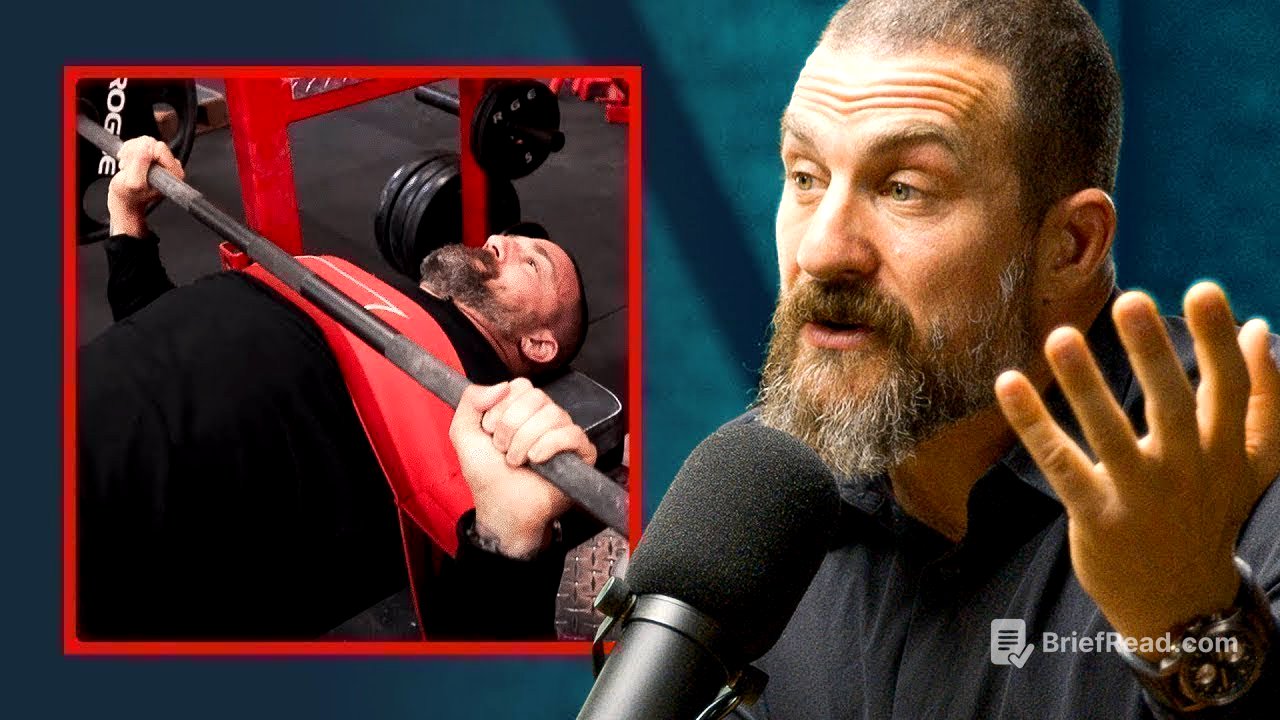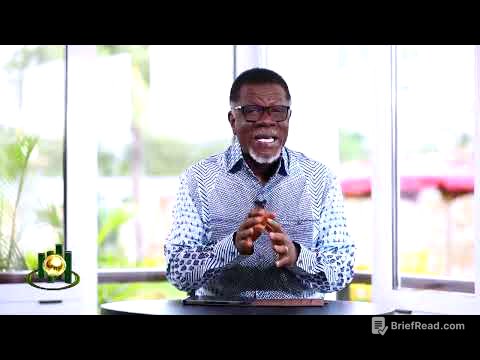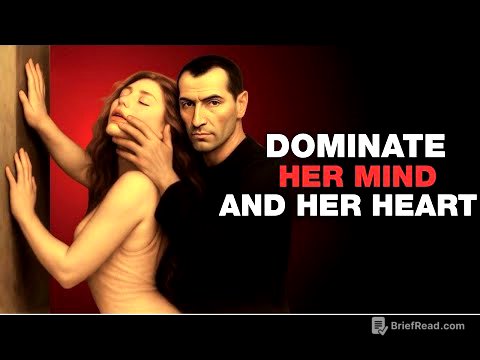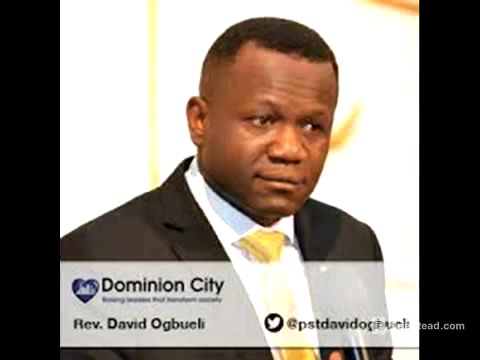TLDR;
This video is about Chris Williamson's morning routine, which he optimizes for sleep, energy, mood, and productivity. He prioritizes sunlight exposure, hydration, cognitive tasks, and physical exercise, while minimizing distractions from email and social media. He also discusses his workout schedule, diet, and napping habits, and emphasizes the importance of focused work periods throughout the day.
- Sunlight exposure early in the morning to regulate circadian rhythm.
- Delaying caffeine intake for 90-120 minutes after waking.
- Prioritizing cognitively challenging tasks in the morning.
- Consistent weight training routine with cardio on off days.
- Strategic napping and focused work periods in the afternoon.
Wake-up and Sunlight [0:00]
Chris wakes up around 6:00-6:30 AM and immediately focuses on getting sunlight in his eyes for about 10 minutes, without sunglasses. He emphasizes that this practice is crucial for regulating sleep, energy, mood, wakefulness, and metabolism. Even on cloudy days, he tries to get as much natural or artificial light as possible. He clarifies that contacts and eyeglasses are fine, but doing it through a window or windshield is not as effective.
Hydration and Electrolytes [2:11]
After sunlight exposure, Chris hydrates with water and Element electrolytes, mentioning he used sea salt or pink salt before Element packets. He waits 90 to 120 minutes before having caffeine, usually in the form of yerba mate. He explains that delaying caffeine allows the adrenal system to be optimized first.
Cognitive Tasks and Avoiding Distractions [3:27]
During the 90-120 minutes before caffeine, Chris avoids email and social media, focusing on one cognitively challenging task, such as reading a research article or working on a document. He aims to get his brain into a linear mode and narrow its aperture, preventing distractions from social media and interactions with others from seeping into the rest of the day. He finds pleasure in battling through mentally challenging tasks, a habit he developed in university.
Physical Workout Routine [4:58]
After the cognitive work, Chris does a physical workout, typically weight training for 45 minutes to an hour every other day. His routine involves a pushing day, rest, pulling day, upper body push, rest, upper body pull, rest, and then legs, with two days off. On off days, he does cardio, such as jogging, skipping rope, or swimming, for 30 to 45 minutes. He sometimes uses a weight vest or incorporates knees over toes exercises. He prefers to weight train in the morning when he is caffeinated and can listen to loud, fast music, keeping his phone out of reach to maintain focus. Workouts include 10 minutes of warm-up and no more than 40-50 minutes of hard work to allow for adequate recovery.
Meals and Naps [7:16]
Chris eats his first real meal around 10:30-11:00 AM, typically oatmeal with fruit, fish oil, and a protein drink. About 90-120 minutes later, he has a larger lunch, which is the biggest meal of the day, consisting of steak, salad, and brazil nuts. After lunch, he works for 30 minutes to an hour, usually on email, and then takes a 10-30 minute yoga nidra nap or a regular nap. He finds naps challenging, sometimes waking up disoriented or grumpy, but occasionally they are pleasant, and he follows them with a double espresso.
Afternoon Work and Evening [8:44]
The hardest part of the day for Chris is around 2-3 PM. He aims to get something cognitively useful done again in the afternoon, working in focused periods with his phone off and out of the room. His goal is to reach the evening so he can do the things he enjoys. He emphasizes the importance of the depth of focus during work periods, rather than the total hours worked.









